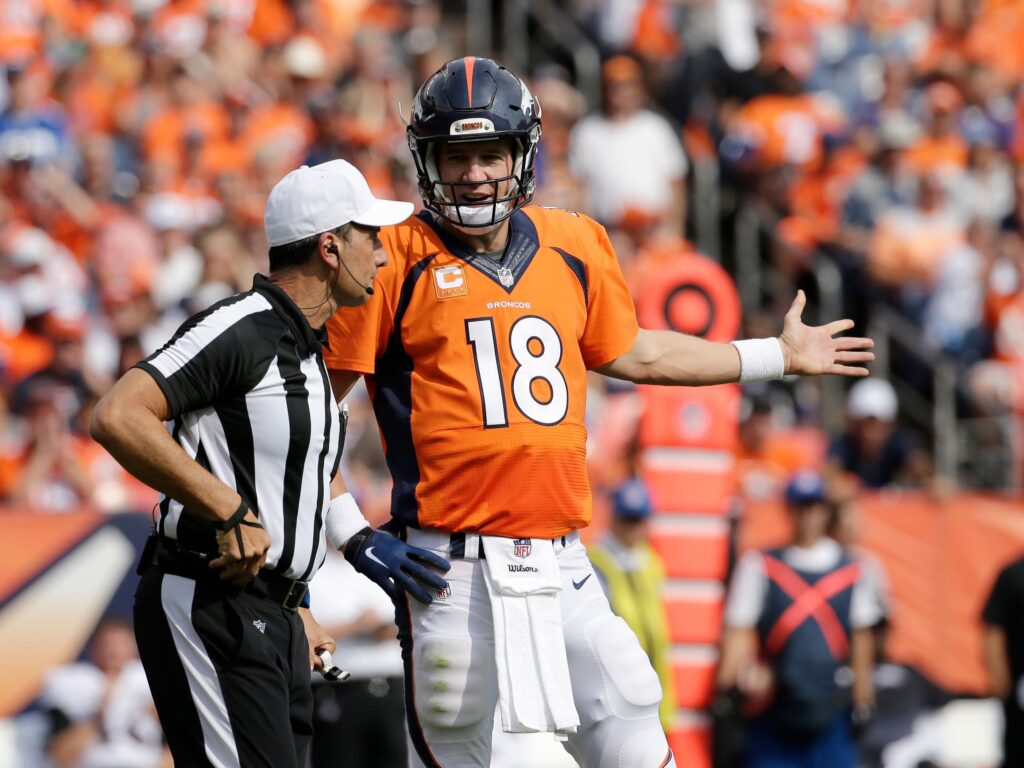- Peyton Manning doesn't believe in halftime adjustments in the NFL.
- On Monday night's "ManningCast," the elder Manning brother said that halftime was too short to change anything substantial.
- "You go in, you use the restroom, you eat a couple of oranges, and then the head coach says, 'Alright, let's go!'"
The first weekend of the NFL playoffs featured several wild finishes.
Despite the Jacksonville Jaguars trailing 27-0 early against the Los Angeles Chargers, the Jaguars clawed their way back to a 31-30 victory to secure a date against Kansas City next week. In the NFC, the San Francisco 49ers started off a bit flat against the Seahawks and trailed at halftime, but then pounded Seattle in the second half en route to a 41-23 victory.
These types of turnarounds are often attributed to halftime adjustments made by the winner, but according to Hall of Fame quarterback Peyton Manning, that's a total myth.
During Monday night's "ManningCast" of the Buccaneers-Cowboys game, Manning explained why he didn't believe in halftime adjustments.
"I don't know if I ever made a halftime adjustment in my entire 18-year career," Manning said, making a glib joke about the Buccaneers as they came out to start the second half trailing the Cowboys 18-0.
"I think that's the biggest myth in football — the halftime adjustments. You go in, you use the restroom, you eat a couple of oranges, and then the head coach says, 'Alright, let's go!'"
Peyton's brother Eli agreed with his assessment.
"You're in there for like, three minutes," Eli said.
"There's no time!" Peyton concluded.
—Awful Announcing (@awfulannouncing) January 17, 2023
The Mannings are right to point to the brevity of NFL halftimes. Save for the Super Bowl, NFL halftimes last just 13 minutes, and with players taking time to walk from the sidelines to the locker room, it's likely there's only about 10 minutes available for players to reset. Add in time for the necessities mentioned by Manning — bathroom breaks, hydration, etc. — and there's little opportunity to devise a revolutionary new attack on your opponent.
Further, if there are adjustments to be made, chances are players like Manning are just as capable of making them on the field as they are in the locker room.
Nearly any time you see a quarterback on the sideline while their defense is on the field, you will see him holding a tablet, looking for a weakness in the opposing defense that can be exploited the next time out.
While it might be fun to imagine a rousing halftime speech and a bold new strategic direction developed in the locker room spurred a team to victory, that, according to Manning, was probably not the case.
